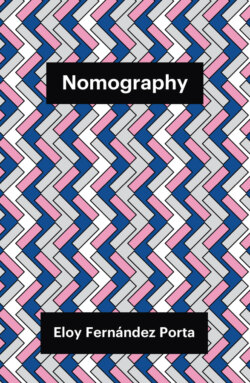Читать книгу Nomography - Eloy Fernández Porta - Страница 6
ОглавлениеTranslator’s Note
Throughout this book, Eloy Fernández Porta uses words and phrases in English. These are often taken from the lexicons of corporate culture or the internet; at other times, they point to Porta’s engagement with Anglophone media or index his fluency in the lingua franca of the global art market or the fashion industry. So the reader of the Spanish original comes across references to “infotainment,” the “smartphone,” the “foodie,” and the “fanbase,” to “outsider” art, the “mainstream,” “normcore,” “chaos magic,” and the “unwearable.” This reader is likewise told, in English, to “Enjoy!,” to “Eat well,” to “Do it yourself,” and even, when the author briefly becomes a “cheerleader,” to “Give me an L! Give me an A! Give me a W!,” to spell, “(All together!) LAAAW!”
As that last example indicates, Porta’s English is often parodic, playful, ironic, or absurd. Anglicisms comically interrupt his sinuous Spanish sentences, or they grate jarringly against the words in their immediate vicinity, to ludic effect. They are like bits of ad copy introduced into an otherwise elegant critical discourse, or Doritos served in a dish made by a chef who specializes in haute cuisine.
The effects of Porta’s use of other foreign languages – French to signal sophistication, Latin to send us all to mass or to court – can be captured or at least closely approximated in translation. But there is unfortunately no way to do justice to the author’s use of English in a rendering of his text in English. “There is no remedy to which translation could have recourse here,” Jacques Derrida writes of the “foreign effect” of foreign words used in another context: “No one is to blame; moreover, there is nothing to bring before the bar of translation.”1
Something could have been brought before the bar, of course: the italicization of words and phrases that appeared in English in the original, for instance. But this would have risked confusion, since throughout the text Porta uses italics to other ends. I have therefore left these words and phrases unmarked, although this means domesticating Porta’s prose, depriving it of some of its multilingual richness and polyphonic playfulness. All references to brand names, fashion designers, films, television programs, musicians, and YouTube sensations have also been retained, even when these might not be familiar to readers of the English. I trust that this will not prevent these readers from complying with Porta’s injunction to “Enjoy!”
Notes
1 1. Jacques Derrida, “Shibboleth: For Paul Celan,” trans. Joshua Wilner and Thomas Dutoit, in Sovereignties in Question: The Poetics of Paul Celan, ed. Thomas Dutoit and Outi Pasanen, New York: Fordham University Press, 2005, 30.
